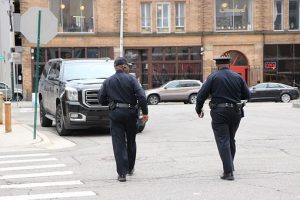New Jersey Civil Service Appeal Process is a Two Way Street
As we have explained here before, the New Jersey Civil Service appeal process gives civil service employees a meaningful avenue for appealing discipline imposed by their government employers. However, a recent appellate opinion is a good reminder that this meaningful avenue for appeal is a two-way street.
The New Jersey Civil Service Appeal Process
When a governmental employer wants to discipline employees with civil service protections, it must first give them a Preliminary Notice of Disciplinary Action (a “PNDA”) listing the charges and specifications against them. Employee then have the right to elect to have a hearing, and whether they do nor not, when final discipline is imposed, the employer must then give the employee a Final Notice of Disciplinary Action (an “FNDA”). For major discipline (a fine or suspension of more than five days, or termination), the employee has 20 days to file an appeal.
 New Jersey Lawyers Blog
New Jersey Lawyers Blog


 the Superior Court of New Jersey in the case of
the Superior Court of New Jersey in the case of 
 tort claim notice must be served in the employment context.
tort claim notice must be served in the employment context. case has a long and tangled history, but this decision illustrates several important employment law rules affecting New Jersey government employees.
case has a long and tangled history, but this decision illustrates several important employment law rules affecting New Jersey government employees. enforceability of agreements in employment contracts to arbitrate disputes under New Jersey
enforceability of agreements in employment contracts to arbitrate disputes under New Jersey 